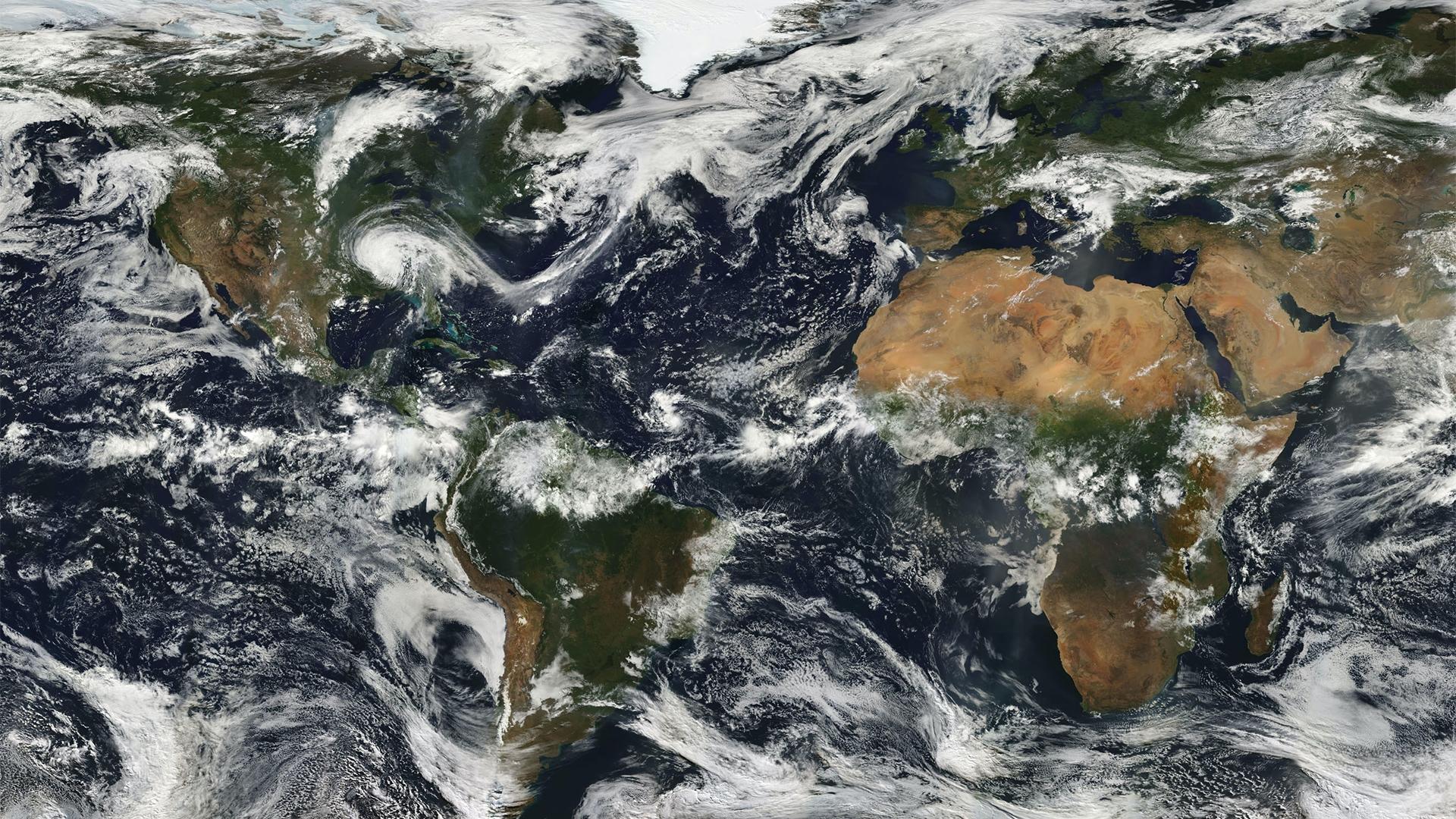
Photo by NASA via Unsplash
From demonstrating how old forests stockpile carbon to improving satellite snowfall measurements and exploring the climate consequences of Arctic sea ice decline, the Earth System Science Interdisciplinary Center (ESSIC) at the University of Maryland is a key producer of research into the planet’s complex physical environment and how humans interact with it.
The center this week announced a new five-year, $95 million cooperative agreement with NASA. Established in 1999, ESSIC is a joint center with NASA's Goddard Space Flight Center that supports research, teaching and career training in Earth system science.
“We are proud to be collaborating with Goddard Space Flight Center on Earth systems science research that is addressing the pressing challenges of global sustainability,” said Ellen Williams, director of ESSIC and a Distinguished University Professor of Physics at UMD who serves as the cooperative agreement’s principal investigator. “In the next five years, we will jointly tackle the challenges of bringing multiple research streams together to make it possible to predict climate change impacts on our communities, agricultural and wilderness areas, and economy.”
The award will enable UMD to expand its close collaboration with NASA Goddard, building on more than two decades of research in meteorology, oceanography, terrestrial physics, hydrology, atmospheric chemistry, ecosystem science and satellite Earth observations. The broad goal of ESSIC is to understand the relationships between Earth’s atmosphere, oceans, land masses and biosphere, with an eye to the influence of human activities on Earth’s coupled systems.
“We have valued and appreciated our scientific engagement over the years and look forward to new opportunities and collaboration going forward,” said Dalia Kirschbaum, director of NASA Goddard’s Earth Sciences Division.
ESSIC links research efforts at UMD’s Departments of Atmospheric and Oceanic Science, Geology and Geographical Sciences with the Earth Sciences Division at NASA’s Goddard Space Flight Center. ESSIC also has a cooperative agreement with the National Oceanic and Atmospheric Administration (NOAA) to support satellite research focused on weather and water forecasting models and predictions. By fostering close integration within the university community and among government partners in NASA and NOAA, ESSIC serves a unique role as a collaboration hub within the national Earth system science research community.
“The University of Maryland takes on humanity's grand challenges, and I can think of no greater validation of ESSIC's efforts to tackle the grand challenge of climate change than receiving this renewal from NASA,” said UMD President Darryll J. Pines. “The future health and welfare of our planet are closely linked to this important work by ESSIC scientists.”
ESSIC will continue to prioritize projects within six major research themes:
- Atmospheric composition and processes (aerosol/cloud physics)
- Atmospheric chemistry/carbon cycle
- The cryosphere
- Hydrometeorology/precipitation retrieval
- Hydrology/land surface processes
- Numerical modeling/data assimilation
“This collaboration between NASA and the University of Maryland recognizes and builds on nearly a quarter century of trailblazing research at ESSIC,” said Amitabh Varshney, dean of UMD’s College of Computer, Mathematical, and Natural Sciences, which administers ESSIC. “ESSIC researchers have given us unprecedented insights into the global and regional connections between land, oceans, atmosphere and human activity. We can't wait for the discoveries that will flow from this new cooperative agreement.”
ESSIC’s 88 scientists and students funded by the current NASA cooperative agreement submitted 168 papers for publication in 2021 alone.
“These scientific results directly inform important decisions that we, as a society, are facing in addressing climate change and global sustainability,” Williams said. “The renewal of this award is a testament to the quality of the work done by our University of Maryland faculty in their collaboration with NASA Goddard Space Flight Center scientists.”
Original news story by Abby Robinson
